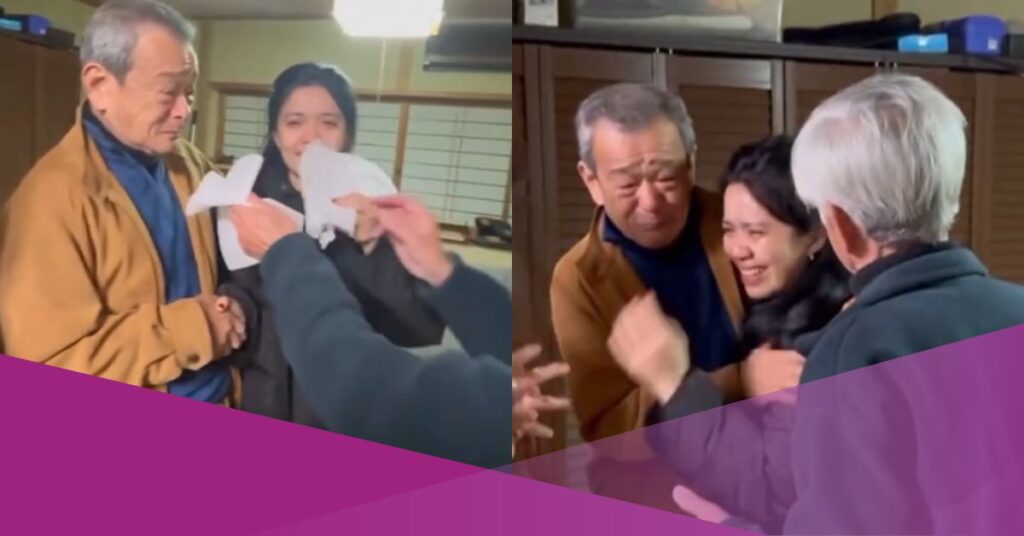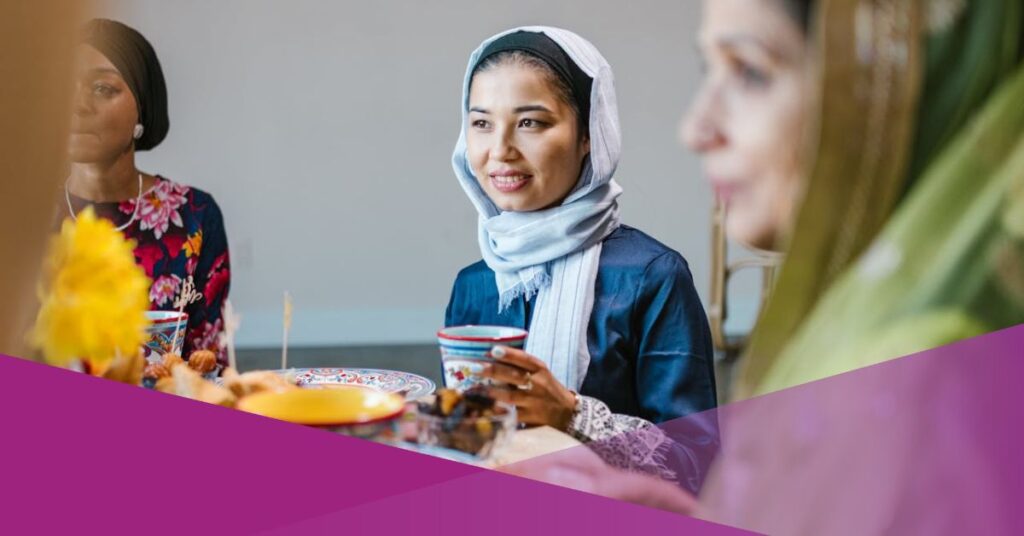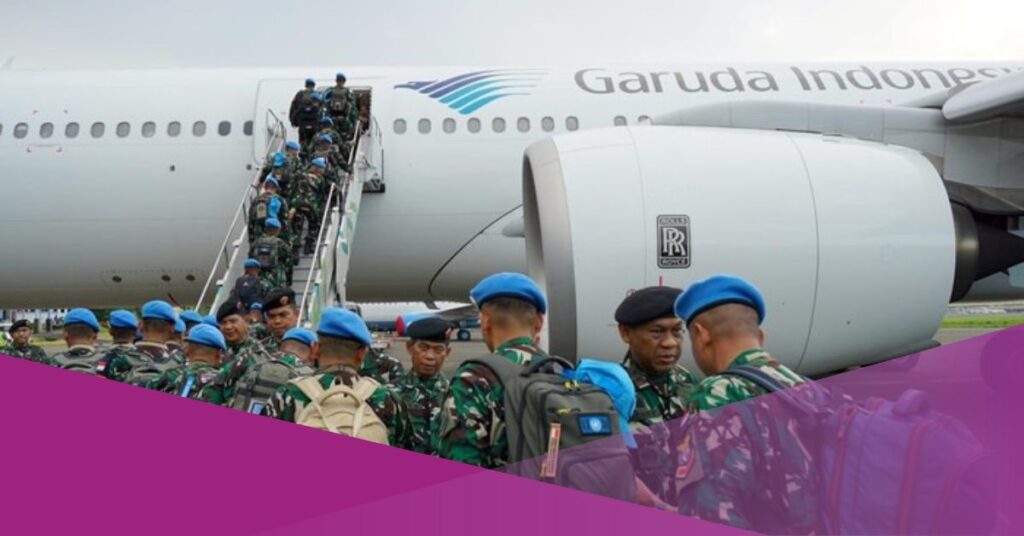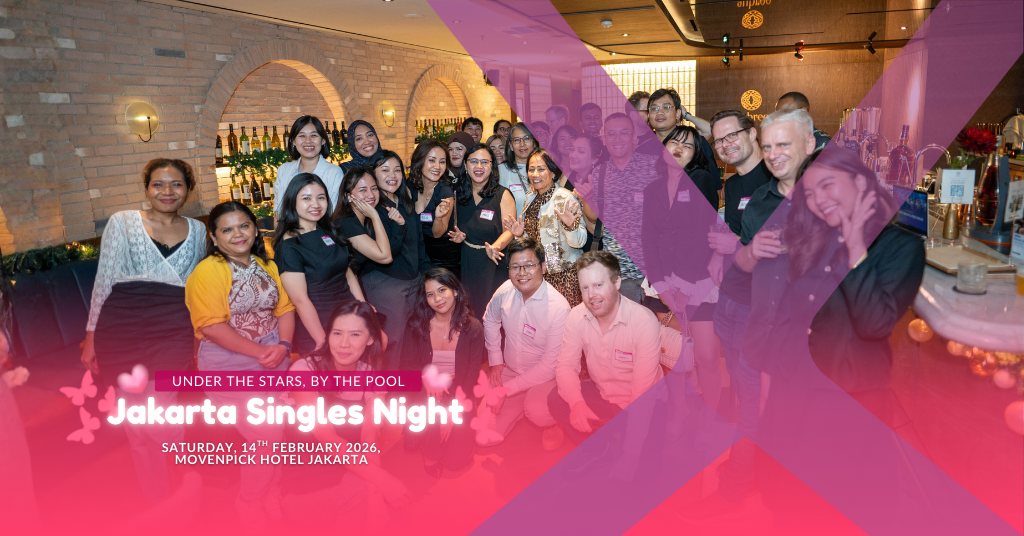Worth learning are some of the Indonesian phrases that add flavor to your traveling and are part of smooth communication with locals. Familiarise yourself with key expressions that are going to go a long way in daily communication, proving respect for local culture along the way.
Whether you want to order food, ask for directions, or simply talk with locals in a friendly way, the following phrases will be helpful in your Indonesian adventure.
Why Learn Indonesian Language Phrases?
Indonesia Language is an Official Language of Indonesia and The Fourth Most Populous Country in the World
Indonesia is currently the 4th most populous country in the world, having a population of over 273 million as of the year 2021. Indonesia is located in Southeast Asia and comprises over 17,000 islands. Over half of Indonesia’s population lives on the island of Java. Jakarta is the capital city of Indonesia. It is the largest city in Indonesia with over 10 million people residing in the city.
Indonesian Locals Like to See that Visitors Know Basic Speaking Indonesian
Indonesians would most of the time appreciate it if visitors could speak Bahasa Indonesia or at least endeavor to learn some common phrases. Even though many Indonesians would speak a bit of English-especially in touristic areas-knowing some Bahasa Indonesia might allow visitors to get themselves across more among locals, especially in more rural or less touristy areas. However, most of them, even when one does not speak the language, are friendly and hospitable to visitors and will do their best to try and put across to you no matter what barriers may come up in languages.
More Chances to See the Country
On the other hand, learning Indonesian will avail one with many opportunities to know about the country. Indonesia is quite a diverse country since it constitutes more than 17,000 islands in total. Though most Indonesians are able to speak English as a second tongue, especially in tourist spots, speaking the Indonesian language takes one deeper into the country in areas where less English would be spoken.
While it’s not a must to know Indonesian to get around Indonesia, additional knowledge of Indonesian is going to make your experience much easier and will give you opportunities to get closer to locals and to find secret escapes.
Essential Indonesian Phrases for Greetings and Farewells
Basic Greetings Essential Indonesian
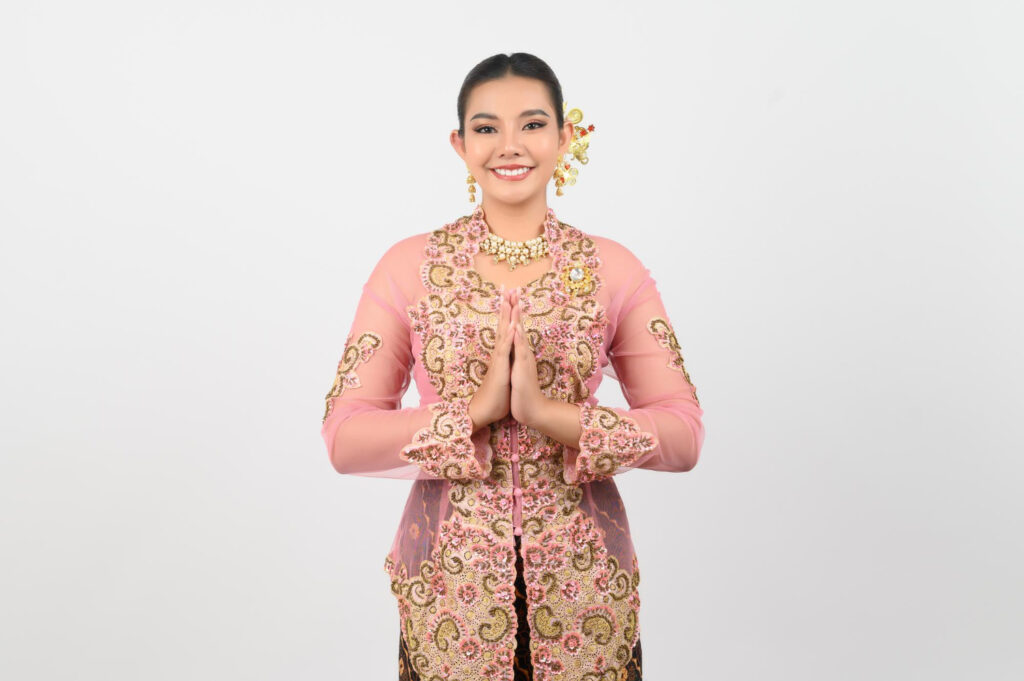
Here are some basic greetings in Indonesian:
1. Selamat pagi. (Good morning.)
2. Selamat siang. (Good afternoon.)
3. Selamat sore. (Good evening.)
4. Selamat malam. (Good night.)
5. Apa kabar? (How are you?)
6. Baik-baik saja, terima kasih. (I’m fine, thank you.)
7. Nama saya [Your name]. (My name is [Your name].)
8. Senang bertemu denganmu. (Nice to meet you.)
9. Sampai jumpa lagi. (Goodbye.)
These are some of the most common and basic Indonesian greetings. Remember to always be polite and use appropriate titles when addressing people of different ages and statuses. Additionally, Indonesian culture places a strong emphasis on respect and politeness, so adding words like “tolong” (please) and “terima kasih” (thank you) to your greetings can go a long way in building positive relationships with locals.
Useful Farewell Phrases in Indonesian Phrases and Words

Here are some useful phrases in Indonesian:
- Selamat tinggal – Goodbye (formal)
- Sampai jumpa lagi – See you again (informal)
- Selamat jalan – Have a safe journey
- Semoga sukses – I wish you success
- Hati-hati di jalan – Be careful on the road
- Terima kasih banyak – Thank you very much
- Maaf, jika ada salah kata – Sorry, if I said something wrong
- Salam hangat – Warm regards
- Selamat datang kembali – Welcome back (when you’re the one staying and the other person is leaving)
- Sampaikan salam saya kepada keluarga – Give my regards to your family
Basic Indonesia Phrases to Help and Words to Use When Traveling to Indonesia
Here are some Bahasa Indonesia phrases and words that you can use when travelling in Indonesia:
- Selamat pagi – Good morning
- Tolong – Please
- Terima kasih – Thank you
- Ya – Yes
- Tidak – No
- Maaf – Excuse me/sorry
- Di mana? – Where?
- Berapa harganya? – How much is it?
- Saya ingin – I would like
- Saya tidak mengerti – I don’t understand
- Ada toilet di sini? – Is there a toilet here?
- Boleh minta bantuan? – Can I ask for help?
- Satu lagi – One more
- Sudah cukup – That’s enough
- Tolong tunjukkan ke – Please show me to (destination)
How to Greet Indonesians in Their Local Language
Locals generally use the word “Selamat” to greet others, which can be translated as “safe” or “peaceful”. Here are some common ways to greet them in their local language:
- Selamat pagi – Good morning (used until around 10-11 am)
- Selamat siang – Good afternoon (used from around 11 am until 3-4 pm)
- Selamat sore – Good evening (used from around 3-4 pm until sunset)
- Selamat malam – Good night (used after sunset)
- Apa kabar? – How are you?
- Selamat datang – Welcome
- Assalamu’alaikum – Peace be upon you (used mostly among Muslim communities)
When greeting someone in Indonesia, it’s also common to shake hands, especially in formal settings. In more casual settings, it’s common to give a nod or smile. Additionally, They often address people by their formal title or name, followed by the word “pak” (for men) or “bu” (for women) as a sign of respect. For example, “Pak Budi” or “Bu Rini”.
Useful Indonesian Basic Phrases for Travellers to Explore The Country
How to Ask Someone for Help in Indonesian

If you need to ask for help in Indonesia, here are some basic Indonesian phrases to help you in the Indonesian language that you can use:
- Tolong – Please help
- Bolehkah saya minta tolong? – Can I ask for help?
- Maaf, bisa tolong bantu saya? – Excuse me, can you please help me?
- Saya butuh bantuan – I need help
- Bisa bantu saya? – Can you help me?
- Saya tersesat – I’m lost
- Saya tidak tahu jalan – I don’t know the way
- Di mana toilet? – Where is the toilet?
- Tolong tunjukkan ke – Please show me the way to (destination)
- Bisakah anda memberi tahu saya cara ke – Can you tell me how to get to (destination)?
When asking for help, it’s important to be polite and respectful. Start by saying “tolong” which means “please help”. You can then state your request or problem, such as “saya butuh bantuan” (I need help) or “saya tersesat” (I’m lost). If you’re asking for directions, you can use phrases like “tolong tunjukkan ke” (please show me the way to) or “bisakah anda memberi tahu saya cara ke” (can you tell me how to get to). By using these common phrases in the Indonesian spoken language, you can communicate effectively with locals and get the help you need.
Indonesian Phrases to Use When You Don’t Understand
If you don’t understand something in Indonesian, here are some common phrases you can use to indicate that you don’t understand and ask for clarification:
- Saya tidak mengerti – I don’t understand
- Apa artinya itu? – What does that mean?
- Bisa diulang lagi? – Can you repeat that?
- Bisa dijelaskan lagi? – Can you explain that again?
- Tolong gunakan kata yang lebih sederhana – Please use simpler words
- Saya belum paham – I don’t understand yet
- Mohon maaf, saya kurang mengerti – Sorry, I don’t understand well
- Maaf, bisa tolong diulang? – Excuse me, can you repeat that?
Using these phrases will not only help you to be able to speak, but you can politely indicate that you don’t understand what someone is saying and ask for clarification. They are generally friendly and helpful, and will often be happy to explain things again or use simpler words if needed. By showing that you are willing to learn and make an effort to understand, you can also build stronger relationships with locals and enhance your experience in Indonesia.
Useful Indonesian (Bahasa Indonesia) Phrases for Ordering Food and Drink
Basic Indonesian Phrases to Know When Ordering Food

Here are some useful Indonesian phrases that will come for every traveller that you can use when ordering food:
- Saya mau pesan – I want to order
- Apa rekomendasi anda? – What do you recommend?
- Tolong saya satu… – Please give me one…
- Bisa minta menu? – Can I have the menu?
- Ini apa? – What is this?
- Boleh minta air putih? – Can I have some water?
- Sudah siap berapa lama? – How long will it take to be ready?
- Saya tidak makan daging – I don’t eat meat
- Sedikit lagi – A little more
- Saya bayar – I will pay
- Bisa tambahkan cabai (pedas) tidak? – Can you add chilli (spicy) or not?
- Berapa harganya? – How much does it cost?
- Tolong pisahkan tagihan ini. – Please separate the bill.
When ordering food in Indonesia, it’s important to be polite and use a useful basic Indonesian phrase such as, “tolong” (please) and “terima kasih” (thank you) appropriately. You can start by asking for a recommendation or the menu with “apa rekomendasi anda?” or “bisa minta menu?”. If you have any dietary restrictions, you can say “saya tidak makan daging” (I don’t eat meat) or “saya alergi terhadap…” (I’m allergic to…). You can then place your order using “saya mau pesan” and the name of the dish or drink you want. Don’t forget to thank the server with “Terima kasih” and say “saya bayar” when you’re ready to pay. By using these essential phrases, you can communicate effectively and enjoy the local cuisine during your visit to Indonesia.
Common Indonesian Phrases for Ordering Drinks
Here are some common Indonesian phrases for ordering drinks:
- Apa minuman spesial anda? – What is your speciality drink?
- Tolong saya satu… – Please give me one…
- Saya mau pesan minuman – I want to order a drink
- Apa ada minuman yang dingin? – Do you have any cold drinks?
- Bisa minta es batu? – Can I have some ice?
- Saya tidak suka manis – I don’t like it sweet
- Tolong tambah gula – Please add sugar
- Saya mau air mineral – I want mineral water
- Saya mau kopi – I want coffee
- Saya mau teh – I want tea
When ordering drinks, it’s important to be polite to speak Indonesian and use “tolong” (please) and “terima kasih” (thank you) appropriately. You can start by asking for a recommendation or the speciality drink with “apa minuman spesial anda?”. If you have any specific preferences, such as cold drinks or no sugar, you can communicate this to the server using “apa ada minuman yang dingin?” or “saya tidak suka manis”. You can then place your order using “saya mau pesan minuman” and the name of the drink you want. Don’t forget to thank the server with “terima kasih”. By using these essential phrases, you can communicate effectively and enjoy the local drinks during your visit to Indonesia.
How to Pronounce Indonesian Food Names Correctly
Indonesian food names can sometimes be tricky to pronounce correctly if you are not familiar with the language. Here are some tips to help you with terms of pronunciation of Indonesian food names correctly:
- Pay attention to the vowels: Indonesian has five vowels: a, e, i, o, and u. Each vowel is pronounced separately, and the pronunciation does not change, regardless of where it appears in a word.
- Pay attention to the stress: Indonesian words are generally stressed on the second-to-last syllable. If a word has more than two syllables, you should stress the second-to-last syllable.
- Pay attention to the consonants: Indonesian has a few consonants that may be difficult for non-native speakers to pronounce, such as “ng” and “ny”. “Ng” is pronounced like the “ng” in “sing”, while “ny” is pronounced like the “ny” in “canyon”.
- Practice: The best way to get better at pronouncing Indonesian food names is to practice. Try listening to native speakers pronounce the words and repeat them. You can also ask a native speaker to help you practice.
Here are some examples of one of the most useful Indonesian food names to increase your Indonesian skills:
- Nasi goreng (Fried rice) – “Nah-see go-rang”
- Sate ayam (Chicken satay) – “Sah-tay ah-yum”
- Gado-gado (Mixed vegetable salad with peanut sauce) – “Gah-doh gah-doh”
- Rendang (Spicy beef stew) – “Ren-dahng”
- Bakso (Meatball soup) – “Bahk-soh”
- Nasi uduk (Coconut milk rice) – “Nah-see oo-dook”
- Soto ayam (Chicken soup) – “So-toh ah-yum”
- Martabak (Stuffed pancake) – “Mar-tah-bak”
What to Say If You Don’t Like a Certain Food
In Indonesian culture, it’s considered impolite to refuse or reject food that is offered to you. However, if you’re in a situation where you’re being served food and you really can’t eat it, it’s best, to be honest, and polite. Here are some phrases you can use to express that you don’t like a certain food:
- Saya minta maaf, saya tidak bisa makan ini. – I’m sorry, I can’t eat this.
- Maaf, saya tidak terlalu suka makanan ini. – Sorry, I don’t like this food.
- Saya punya alergi terhadap makanan ini. – I have an allergy to this food.
- Maaf, saya tidak bisa makan pedas. – Sorry, I can’t eat spicy food.
- Saya mohon maaf, saya sudah kenyang. – I’m sorry, I’m already full.
It’s important to say these phrases politely and concerning the person who offered you the food. It’s also a good idea to thank them for the effort they put into preparing the food. For example, you can say “Terima kasih, tetapi saya tidak bisa makan ini” which means “Thank you, but I can’t eat this.”
In general, it’s best to try new foods and be open-minded when experiencing different cultures. However, if you really can’t eat something, it’s better, to be honest and polite about it rather than trying to force yourself to eat it.
Don’t Worry. You’ll Need Only a Few Basic Indonesian Phrases
You don’t need to be fluent in Indonesian to get by as a traveller in Indonesia. Knowing just a few basic Indonesian phrases can go a long way in helping you communicate and connect with locals. Make your trip to Indonesia more enjoyable by learning a few basic phrases!
FAQ
Q: What is the article about?
A: This article is about some useful Indonesian basic phrases that can help any traveller while travelling to Indonesia.
Q: What are some useful Indonesian phrases to help me while travelling to Indonesia?
A: Here are some basic Indonesian phrases to help you out: – “Selamat pagi” (pronounced: se-la-maht pa-gee) means “Good morning” – “Saya” (pronounced: sah-yah) means “I” – “Terima kasih” (pronounced: teh-ree-mah kah-see) means “Thank you” – “Tidak apa-apa” (pronounced: tee-dahk ah-pah ah-pah) means “No problem” – “Maaf” (pronounced: mah-ahf) means “Sorry”
Q: How do I pronounce useful Indonesian phrases?
A: Here are some pronunciation tips for basic Indonesian phrases: – “A” in Indonesian is pronounced as “ah” – “E” in Indonesian is pronounced as “eh” – “I” in Indonesian is pronounced as “ee” – “O” in Indonesian is pronounced as “oh” – “U” in Indonesian is pronounced as “oo”
Q: What are some phrases to use when greeting someone in Indonesia?
A: Here are some phrases to use when greeting someone in Indonesia: – “Selamat pagi” means “Good morning” – “Selamat siang” (pronounced: se-la-maht see-ahng) means “Good afternoon” – “Selamat malam” (pronounced: se-la-maht mah-lahm) means “Good evening” – “Apa kabar?” (pronounced: ah-pah kah-bahr) means “How are you?”
Q: What are some useful basic Indonesian phrases to know?
A: Here are two languages: some more useful basic Indonesian phrases to know: – “Silahkan” (pronounced: see-lah-kehn) means “Please” – “Mau ke mana?” (pronounced: mah-oh keh mah-nah) means “Where are you going?” – “Berapa harganya?” (pronounced: beh-rah-pah hahr-gah-nyah) means “How much is it?” – “Bisa bicara bahasa Inggris?” (pronounced: bee-sah bee-char-ah bah-hah-sah ing-gris) means “Can you speak English?”
Q: How can these useful Indonesian phrases help me while travelling to Indonesia, especially Bali?
A: These Indonesian phrases can help you navigate through Bali and communicate with the locals, be it at the market, a restaurant, or while asking for directions.
Q: How can I practice these useful Indonesian phrases?
A: You can practice these Indonesian phrases by using them while talking to local people, shopkeepers, or waiters. Alternatively, you can try learning the language through online classes or language exchange programs.
Q: How important is it to know the local language when travelling to Indonesia?
A: Knowing the local language, even just the basic phrases, can help you in many places in Indonesia, especially outside of popular tourist areas. It can also help you communicate and build a connection with locals and appreciate the hospitality of the country.
Q: Why should I learn Indonesian?
A: Indonesian is the official language of the Republic of Indonesia, the world’s largest archipelago. Learning the language can also help you understand the culture better, meet someone new, and experience the beautiful country with more depth. travelling to Indonesia. travelling to Indonesia. travelling to Indonesia. travelling to Indonesia. travelling to Indonesia. travelling to Indonesia.
Found this article interesting? Check out other articles from Social Expat!
Ours Recommend For a Trusted Visa Agency
If you are planning to visit Bali, and wondering where to find trustable Visa agency. We can recommend you to LetsmoveIndonesia, Indonesia’s most trusted visa, and business consultancy. Visit their website and get a free consult now.
For further information to get your Second Home Visa, contact Indonesia’s Most Trusted Visa Agency – LetsMoveIndonesia, or contact them using any of the contact details here: WA: +62 812 9260 0590, T: +62 21 300 297 27 (Jakarta) T: +62 361 934 8343 (Seminyak) T: +62 361 939 9406 (Canggu), T:+62 361 280 789(Sanur), E-mail: Info@letsmoveindoneisa.com


